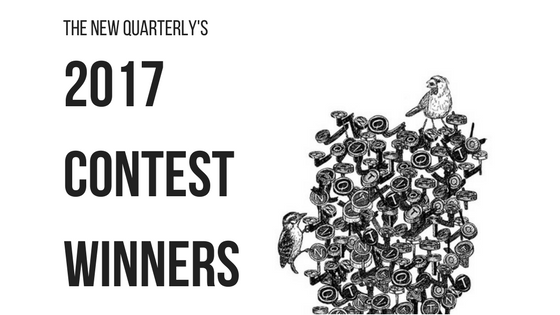Reflection
I am sitting mum, decked up and bejeweled. Golden drapes cascade down the wall behind me. Chandeliers hang from the ceiling like the weighty earrings I am wearing. My entourage of bridesmaids have just escorted me to the stage, dancing their way through the aisle, clapping to Bengali wedding songs.
My mother is in tears. Every now and then, she wipes her eyes with the end of her sari as she talks to a guest at a nearby table. I cannot hear them amidst the blaring music, but I know exactly what the conversation entails, word for word. “Don’t cry, Bhabi,” the woman must have said. “Today is a day of great happiness.” I also know what my mother will say next: “My life is complete. My daughter has found her match.”
I graduated a few months ago with a B.A. from York University. I am twenty-two years old. They—meaning my suitors and their mothers—say my face is pretty, my smile in particular. I come from a good family, they tell me. But there is a slight limp in my left leg from polio, and this, they say, is a deal breaker. Actually, they have never said it out loud. But each time I have looked into their eyes, I have seen the same descending cloud, a screen that shuts me out as soon as they notice my walk, that tells me that I will never hear from them again. So, I have been told not to be picky. I should feel grateful to have any man who is magnanimous enough to sacrifice his desires to be with me. I know it is the same for some of my friends, too. They have crossed the age of thirty and have three to four degrees. They, too, must not expect much, they are told.
My husband, Amir, is dashingly handsome. As he sits to my right on the velvet-cushioned seat, wearing his princely sherwani and turban, he looks grandiose, as grandiose as this night. He is tall with sharp, chiseled features, and holds an MBA from the University of Toronto. “You are so lucky, my dear!” my mother chanted the day he asked for my hand. A few coffee dates was all it took, a few conversations that revealed nothing more than his current work projects and his childhood in Dhaka. He spoke little and smiled with reserve. But there was a tenderness in him that I could not deny. It irked me. Every time I think of that dreadful last date, when he asked me in his soft voice, his face expressionless, if I would marry him, I can feel the heat crawling under my skin.
I had no reason to say no, since it was a yes from him. And turning down perfection would not just make me look picky or ungrateful. It would stamp me as an arrogant fool for the rest of my life. “This is beyond our imagination!” My mother still repeats like a mantra. “What an amazing guy, and just so nice.” Yes. The others were nice, too. The only difference is their reaction was polite rejection, while his was pitiful acceptance.
Our shoulders touch and I cringe. My eyes sting as an army of cameras flash before me. The togetherness of me and my husband has just been captured, sealed, frozen in time. It did not seem like that even moments ago when I signed the contract with my henna-covered hand, and said “I accept” to the Qazi. I don’t hold back the tears now. In that sense, Bengali brides are fortunate. We can cry without any restraint on our wedding day, easily releasing all kinds of suppressed agony under the guise of the one pain we have absolute permission to feel: the pain of leaving our parents.
The lights keep firing at me like gun shots, and I look past defiantly, searching in the midst of the crowd of five hundred guests for David.
David is not Bengali. He has blonde hair and cream-coloured skin. His eyes are blue, deep and mysterious like the ocean. “Your Canadian friend,” my mother calls him. I am never quite sure what bothers me more—her calling him “Canadian,” or my “friend.” It is not her fault entirely. “Friend” is the safest label for a dead-end relationship, so this is how I introduced him to her soon after I met him in my second year of university. He could visit my house, chauffeur me to and from university. We could work on assignments together and, in the presence of my mother, we would always stand a safe distance apart. The only time we could hold hands or kiss without suspicion was inside his car in the parking lot or the empty hallways of our university, like curious, rebellious teenagers. For two years, we have been together, surreptitiously loving one another—though never talking about marriage. He did not dare to bring it up, knowing that my mother would never forgive me for this betrayal, for dismissing all the struggles she has faced for me, raising me by herself after my father’s passing, working night shifts at Wal-Mart, imbibing cultural values in me against all odds in a Western country.
Each time a man rejected me, it was David who sat through my grievances, patiently listening on the phone while I moved from crying and cursing to finally thanking my suitors for leaving my lover and me alone. Each time he comforted me with the same words: “I love you. I always will.” I have never heard anything close to this from any of my suitors. In fact, I could see right through their masquerade of polite silence, laughing at me in their thoughts, repeating over and over again, “You fool. What makes you think I would ever marry you?” And each time my mother brought another prospect, a Bengali, thinking that he was the best possible match for me, I wanted to say to her, “Will he love me like David?” I feel like screaming it today, into the microphone that sits on the podium. But I stay quiet. My struggles are nothing compared to my mother’s. And for this reason, instead of eloping with David, I invited him as my friend, as a guest.
I think I see him.
My family friends, Sadaf and Saima, walk up on stage. They have just announced the ritual of Rusmat, where bride and groom look at one another in the mirror underneath the canopy of a glittery shawl and declare what they see as they observe the image of their significant other. I quickly try to think of something original. The husband usually says, “I see the moon,” or, “I see my life.” When Saima was getting married, her husband, Ahmed said, “The best thing that ever happened to me.” She said, her eyes full of truth, “I see my best friend.”
Saima walks behind us and spreads a red and gold shawl over our heads. The weight of my sari, the pounds of gold around my neck, the extra shawl over my head feel unbearable. I imagine myself standing in a garden with David wearing a white gown and a dainty pair of earrings, facing him as he says, “I do.”
Sadaf holds a mirror in front of me and Amir. “What do you see?”
Our eyes meet in the mirror but I quickly glance away.
“My reflection,” Amir says, looking straight into the glass.
Saima and Sadaf break out in laughter. “Come on, Mister. You gotta do better than that.”
When they ask me, I say the same thing, looking at myself.
My friends keep on laughing.
It was not David I saw in the crowd. My friends, Halle and Angela join me at our special dinner table, reserved for the newlyweds and their closest friends and cousins. David was supposed to come with them. I want to ask them where he is but my husband is right next to me. I scan the crowd one more time and see the blonde-haired man I thought was David. The server brings a massive lamb roast, surrounded by lettuce sheets and discs of cucumber and tomato. It is placed at the centre of the table and my husband and I must hold the knife together to cut the meat. Another ritual. I take my phone out of my purse and check to see if David has sent any texts, but there is nothing. I place my focus back on the knife. My husband holds it too, as we run it through chunky flesh. David is vegan. I wonder how he would react, watching me butcher a dead baby sheep all over again.
It is time for me to leave the hall, and my mother’s life permanently. She begins to howl. I, too, start to sob, this time really feeling the grief of separating from her. I embrace her as tightly as I can, and relatives surround us in sympathy. Voices around me advise me to be strong. This is something David would never understand—the uncontrollable crying at the moment of the bride’s departure. I take one last look around for him as I prepare to exit through the main gate. Suddenly, pain shoots up my left leg. It feels heavy as I step outside. I suppress it so my husband won’t have to hold me. Could it be possible David came for a little while and left, not wanting me to see him? Perhaps he did not want me to weaken? Maybe, for this very reason, he did not come at all. In the car I pull out my phone to see if there is a text message saying, “I love you. I always will.” Nothing. David’s absence on this day, his act of detachment, does not make me think of him less. I long for him more desperately. I look at Amir. He is looking away, gazing indifferently out the window.
After hours of bright lights and loud music, the quiet in the hotel bedroom is unsettling. Ahmed has carried our suitcases up to the suite, and the small group of friends that accompanied us to the hotel has left. I have changed out of my wedding attire, and slipped into my nightgown. The furniture in the room is minimal: just a desk, a chair and two bedside tables. Two night lamps, dimly lit, flank the queen-sized bed. Magenta-red rose petals are scattered all over the white bed sheet. The large window is covered with white curtains that blow like apparitions above the air conditioner. While Amir uses the washroom, I take out my phone and charger. I cannot let it die. Before I can plug it in, Amir comes out, wearing his pyjamas.
“Muna, there is something I need to tell you,” he says as he hesitantly walks towards me. Great. The jerk will probably reveal he has a girlfriend. I knew it. A part of me feels great relief. I can tell him about David. Then we will be even.
“I didn’t want to marry you, Muna,” he says. “You deserve so much better than me.”
He pauses.
I have a bloody limp on my leg! What does he mean I deserve better?
“Go on,” I say.
I am prepared for the rejection. It was coming sooner or later. Compared to all my other suitors, he has kicked it up a notch. Instead of just keeping silent and disappearing into thin air, he separated me from David, then dressed his rejection in “It’s not you, it’s me” nonsense. Sadistic bastard.
He approaches the bed and sits beside me at a distance where it is impossible for our bodies to even touch accidentally. I feel safe— until he slowly begins to undo the buttons on his shirt. I am confused. I begin to feel a lump in my throat. I shift a little, turning my face away. After he takes off his shirt and places it on the bed, he raises his arms to pry off his undershirt. My heart starts to thump. My fists tighten as I clasp the bed sheet. I can feel the beads of sweat gathering on my neck. I want to shout and cry as loudly as I can. I cannot let this man touch me. God. No! I am glad my phone is right beside me.
“Muna, look at me,” he says softly. “Please.”
I finally turn towards him. As I stare at his bare upper body my hands release the sheet and shoot up, clasping tightly over my mouth. Massive scars travel from his right shoulder down his chest and right arm, wounds etched deeply, stubbornly into his skin.
“It was a kitchen accident,” he continues. “I was heating a pan of oil to deep fry pakora, and… Anyway, forget the details. It’s a third-degree burn.”
I am unable to say anything. I feel frozen.
“My mom and dad fell in love with you,” he says. “They wouldn’t let me tell you about this. But I was hoping you would say no to me anyway. I wouldn’t mind. Everyone else did.”
He starts to put his shirt back on and approaches the door. “You are free to decide, Muna,” he says.
“Where are you going?” I ask.
“I am going to see if they can give me another room.”
“Wait,” I call out to him. “Please sleep here. We can talk tomorrow.”
Slowly, reluctantly, he comes back to the bed. As he starts to turn the night lamps off, I stop him. “Do you mind if we keep them on? I can’t sleep in the dark.”
“Sure.”
He awkwardly slips into bed beside me, knocking over a glass of water he’d placed on the bedside table. The water splashes across his pillows. He jumps up, puts the glass back in position and runs to the washroom. I follow him as he returns with a towel and begins to scrub the surface of the pillows.
“Don’t worry,” I tell him. “Take one of mine.””
“What about you? Are you okay with one?”
“Yes, I’ll be fine,” I lie to him. Since childhood, I have been used to sleeping with two pillows. He takes the pillow from my hand and adjusts it under his head. Lying on his back, he drapes his left arm over his face, covering his eyes. I can tell the light is keeping him awake. I rest my head on my pillow. I am not able to sleep either. But for some reason, I am no longer making an effort to shut my eyes, to hurry into oblivion. I turn onto my side to face my husband. “Tell me everything. How it happened.” He unfolds his arm and faces me. There are only a few inches between us. As he begins to speak, I gaze deep into his eyes, as clear as glass. Strange. I feel the urge to call him my friend, even though my mother is not here. Hours have gone by. My head has shifted onto the corner of Amir’s pillow. I can feel my left leg gently touching his right, his right arm brushing against my left. My phone is still on the table, lying dead. Sunlight has shot through the curtains, and we are still chatting.

Bio: Silmy Abdullah is a Toronto based writer. She writes both fiction and nonfiction. Her nonfiction work has been published by Second Story Press and she is currently working on a short story collection on the Bengali immigrant experience in Toronto. She is an alumnus of Toronto’s Diaspora Dialogues Program for emerging writers.
Read more







